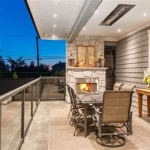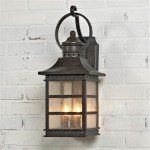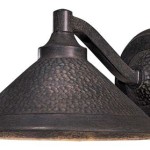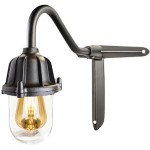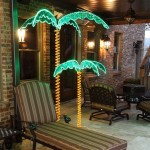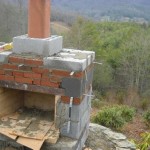What Is The Best Manual Settings For Outdoor Photography
Outdoor photography offers a vast array of possibilities for capturing stunning images. From vibrant landscapes to dynamic portraits, the natural world provides a constantly changing backdrop for creative expression. However, achieving optimal results in outdoor photography often involves venturing beyond the simplicity of automatic settings. Mastering manual settings empowers photographers to exercise control over key elements like exposure, depth of field, and white balance, resulting in images that reflect their artistic vision.
This article explores the essential manual settings for outdoor photography, providing a comprehensive guide for photographers looking to elevate their skills. It will delve into the interplay of aperture, shutter speed, and ISO, highlighting their impact on image quality and creative expression. By understanding these settings, photographers can effectively capture the beauty and dynamism of the natural world.
Aperture
Aperture, represented by an f-number, controls the size of the lens opening, influencing the amount of light that reaches the sensor. A wider aperture (smaller f-number) allows more light in, creating a shallow depth of field, where the subject is sharp while the background is blurred. This technique isolates the subject, drawing the viewer's attention. Conversely, a narrower aperture (larger f-number) allows less light in, yielding a greater depth of field, keeping both the subject and background in sharp focus. Landscape photography often utilizes a smaller aperture to ensure sharpness throughout the scene.
When choosing an aperture for outdoor photography, consider the following factors:
-
Subject:
For portraits and macro photography, a wider aperture is typically preferred to create a blurred background and emphasize the subject. -
Depth of field:
For landscapes and group portraits, a narrower aperture ensures that everything in the scene is in focus. -
Light conditions:
In low-light situations, a wider aperture allows more light to enter the lens, reducing the need for a higher ISO, which can introduce noise.
Shutter Speed
Shutter speed determines the duration for which the camera's shutter remains open, controlling the amount of light that reaches the sensor. A faster shutter speed (measured in fractions of a second) freezes motion, ideal for capturing fast-moving subjects like birds in flight or sporting events. A slower shutter speed allows more light to reach the sensor, blurring motion, often used to create artistic effects like motion blur in waterfalls or to capture star trails in the night sky.
When selecting a shutter speed, consider the following:**
-
Subject movement:
For stationary subjects, a slower shutter speed can be used to capture more light. For moving subjects, a faster shutter speed is necessary to freeze motion. -
Light conditions:
In brighter conditions, a faster shutter speed can be used to avoid overexposure. In lower light conditions, a slower shutter speed is necessary to capture enough light. -
Creative intent:
Slow shutter speeds can be used to create motion blur, while faster shutter speeds can be used to freeze movement.
ISO
ISO represents the camera's sensitivity to light. A higher ISO value increases the sensor's sensitivity, allowing for shorter exposure times in low-light conditions but introducing digital noise. A lower ISO value reduces sensitivity, resulting in a cleaner image but requiring longer exposure times. In outdoor photography, striving for the lowest possible ISO is generally recommended to maintain image quality. However, when shooting in low light, increasing the ISO may be necessary to capture a properly exposed image.
When choosing an ISO, consider the following factors:
-
Light conditions:
In bright light, a low ISO is recommended for optimal image quality. In low light, a higher ISO may be necessary to capture enough light. -
Camera capabilities:
Each camera has a native ISO range, and exceeding this range may introduce excessive noise. -
Image quality:
Higher ISO values can introduce noise, which can be reduced in post-processing but may affect image quality.
Interplay of Settings: The Exposure Triangle
Aperture, shutter speed, and ISO are interconnected elements that collectively determine the overall exposure of an image. This relationship is often referred to as the "exposure triangle." Understanding how these three settings work together is crucial for achieving the desired exposure and creative effects.
For instance, in low-light conditions, a wider aperture can be used to allow more light in, enabling a faster shutter speed to freeze motion. However, if the aperture is already wide, increasing the ISO may be necessary to obtain a proper exposure.
Mastering the exposure triangle empowers photographers to make informed decisions about how to use the three settings to capture optimal exposure and creative effects. Practice is key! Regularly experiment with different combinations of aperture, shutter speed, and ISO to understand how they impact the final image.
Additional Tips
Beyond the exposure triangle, other manual settings contribute to capturing compelling images:
-
White balance:
White balance adjusts the color temperature of an image to reflect the actual colors of the scene accurately. For outdoor photography, auto white balance usually produces accurate results, but shooting in "cloudy" or "shade" white balance settings can often result in more pleasing tones, especially when shooting in the shade or under overcast skies. -
Metering mode:
Metering mode determines how the camera measures the amount of light in a scene and sets exposure accordingly. Most cameras provide options like spot metering, center-weighted metering, and evaluative metering. Spot metering measures light from a small area in the center of the frame, ideal for focusing on a specific subject. Center-weighted metering averages light from the center of the frame, suitable for a variety of subjects, while evaluative metering considers the entire scene to determine exposure. -
Focus points:
When shooting in manual mode, selecting the right focus points can be critical for achieving sharp images, especially when shooting moving subjects or in low-light conditions.
Outdoor photography provides a continuous challenge and endless opportunities for exploration. By understanding and mastering manual settings, photographers can capture breathtaking images that reflect their artistic vision and provide a lasting testament to the beauty of the natural world.

Settings For Portraits Taken Indoors Outdoors

Settings For Portraits Taken Indoors Outdoors

How To Shoot In Manual Mode Photography Basics Best Tips

How To Take Outdoor Portraits Like A Pro Live Snap Create

Settings For Portraits Taken Indoors Outdoors

How To Shoot In Manual Mode Cheat Sheets For Beginners

Professional S Guide To Landscape Lighting Photography

How To Take Outdoor Portraits Like A Pro Live Snap Create

Settings For Portraits Taken Indoors Outdoors

Photography Cheat Sheet Manual Mode Settings Wver The Weather
Related Posts
